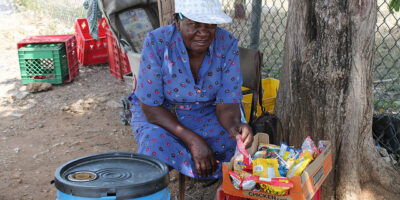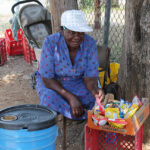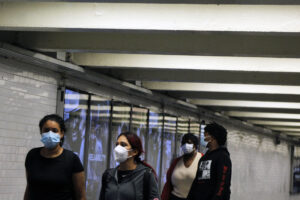Marlon Bailey
Department of Urban Studies, School of Labor and Urban Studies
URB 600: Classical Approaches to Urban Studies
Professor: Kafui Attoh
April 27, 2021, Women Reproduction, and the Commons
Silva Federici in her book Women, Reproduction, and the Commons stated that this was a method use for social organization as we go through this phase of capitalist development. This social organization is of the utmost importance due to the global stance/war that neoliberalism wing of capitalism is waging its war again both the natural and social commons and by the looks of it this will never be a reversable trend soon. With the huge profit gained internationality the acceleration of the usage of this business modius operandi have created an historic profitability crisis that all who participate in international capital markets is using this method of acquiring wealth to speed up their accumulation of wealth, by injecting it into every sovereign state globally and eventually into all aspects of our lives by completing their agenda, which is forcefully removing residents from the land they own, nature the communities and relationship they took decades to form, because this is the only way this system can survive.
Simon Black in his analytical article titled “Social Reproduction and the City” stated that in a city of workers, who cares for the children. Explains the process use to process and regulate welfare recipients in 1998 by highlighting the content and format of a letter used by the New York City’s Human Resources Administration (HRA) to designate to these recipients their workfare assignments. That entails cleaning public facilities, filing documents assigned to them also sweeping and getting rid of trash that accumulated around public buildings for them to receive a welfare check. This letter sent to welfare recipients includes instruction and detail about their work assignments and the inclusion of them paying for childcare but lack the most essential information of childcare providers or the advice on how to find one that would take HRA vouchers or one that was vetted and deemed to be licensed and safe by the city. This information was never made available to welfare recipients. This was the climate and treatment of people of color that existed in neoliberal New York city in 1998. To learn more about social reproduction and the commons from Dr. Silvia Federici please watch this video
Simon Black continued in chapter one of his book “Social Reproduction and the City: Towards a Feminist Political Economy of Urban Welfare Regime pinpointed the pitfalls that exist in urban cities by using Sedef Arat-Koç, 2006 Quote that stated “One of the greatest achievements of feminist political economy has been to talk about social reproduction, to make visible and to problematize what would otherwise be invisible or seemingly trivial to the economy, to society, and even to (liberal) feminist theory. Black “Social Reproduction and the City “(Pg.4). This is due to the decades of socialist feminists’ interest in transforming urban cities and their environments. (Black, Social Reproduction and the City, University of Georgia Press, 2020 (Pg.4).
Neoliberalism throughout the fifty states of the United States have been responsible for the restructuring, reshaping of social reproduction by subcontracting out the reshaping and restructuring responsibilities to subnational governments who in turn offload the task of social reproduction to private entities for a price. This fuels an immediate shift towards crisis management in social reproduction geared towards poor and working-class families of color households that eventually molded itself into a crisis of care.
In conclusion Silva Federici in her book Women, Reproduction, and the Commons and Simon Black in both his assessments in Social Reproduction and the City and the continuation of it in chapter 1 titled Towards a Feminist Political Economy indicated from their unique perspective but sharing the same viewpoint. Shows that during neoliberalism the treatment of women in the reshaping and restructuring of the city have made it abundantly clear. that growing the economy of cities come at a price that are usually at the young single mothers of that are made to jump through hoops to receive financial assistants through welfare. This is all done to maximize profit acquire land and control natural resources. But Federici and Black agreed that the pushed back from feminist socialist groups toward neutralizing this neoliberalism elitist agenda of international capital markets advancement towards global control of finance and huge profit margins.
Work Cited
Black, Simon (2020) Social Reproduction and the City: Welfare reform, childcare and resistance to Neoliberal New York. Athens GA: University of Georgia Press. Introduction and Chapter 1.
Federici, S. (2019) Women, Reproduction, and the Commons. The South Atlantic Quarterly. October.














